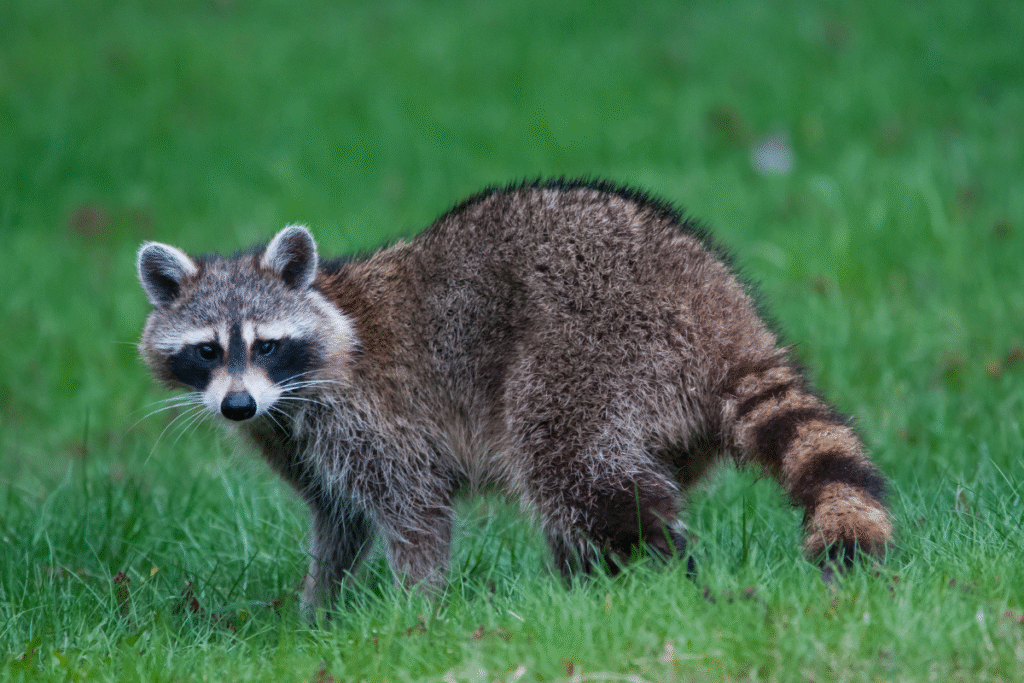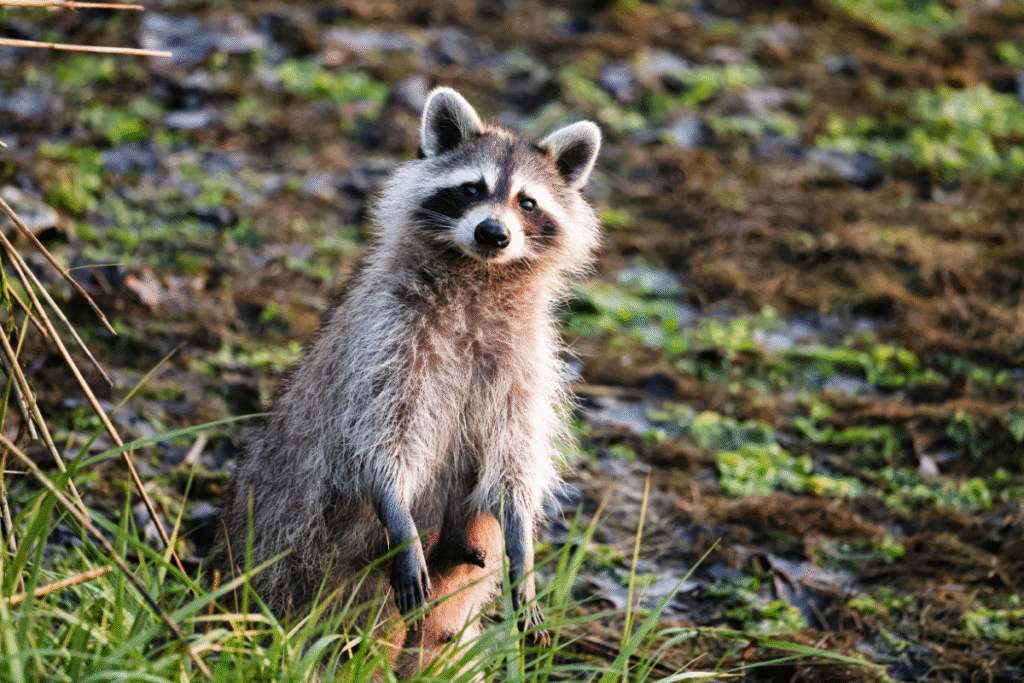Raccoons are clever, adaptable creatures that can become a nuisance when they invade your yard. They dig through trash, damage gardens, and may even carry diseases.
If you’re dealing with these masked bandits, here’s a complete guide on how to get rid of raccoons in your yard safely and effectively.
Why Are Raccoons in Your Yard?
Before tackling the problem, understand why raccoons are attracted to your property:
✅ Food Sources – Unsecured trash cans, pet food, bird feeders, or fallen fruit.
✅ Water Access – Ponds, fountains, or pet water bowls.
✅ Shelter – Attics, sheds, decks, or dense foliage.
✅ Easy Entry – Weak fencing, open chimneys, or broken vents.
Humane & Effective Ways to Remove Raccoons

1. Eliminate Food Sources
Raccoons are opportunistic feeders. Remove what attracts them:
✔ Secure trash cans with bungee cords or locking lids.
✔ Bring pet food indoors at night.
✔ Clean up fallen fruit & birdseed.
✔ Use raccoon-proof compost bins.
2. Use Motion-Activated Deterrents
Raccoons dislike sudden movements and noises:
✔ Motion-activated sprinklers (like ScareCrow).
✔ Ultrasonic repellents (emit high-frequency sounds).
✔ Bright LED lights that turn on when movement is detected.
3. Install Physical Barriers
✔ Chicken wire fencing (bury at least 12 inches deep to prevent digging).
✔ Metal mesh covers over vents and chimneys.
✔ Spikes or netting around gardens and ponds.
4. Natural Repellents
Raccoons hate certain smells:
✔ Ammonia-soaked rags (place near den areas).
✔ Cayenne pepper or garlic spray (apply around trash cans).
✔ Predator urine (fox or coyote urine from hunting stores).
5. Trap & Relocate (If Legal)
If raccoons persist, consider live trapping:
✔ Use a large humane trap (30+ inches) with bait (marshmallows, cat food).
✔ Check local laws—relocating raccoons may require a permit.
✔ Release at least 5 miles away in a wooded area.
6. Call a Wildlife Professional
If raccoons are nesting in your attic or causing major damage, hire a licensed wildlife removal expert to:
✔ Safely remove raccoons.
✔ Seal entry points to prevent re-entry.
✔ Clean up droppings (raccoons can carry diseases like rabies).
How to Prevent Raccoons from Returning

Once you’ve removed raccoons, take these steps to keep them away:
✔ Seal garbage bins tightly (use raccoon-proof containers).
✔ Trim tree branches near your roof to prevent access.
✔ Install a fence (at least 4 feet high with an outward bend at the top).
✔ Remove standing water (fix leaks, cover pools).
✔ Keep your yard clean (no food scraps or clutter).
FAQs About Getting Rid of Raccoons
1. What smells do raccoons hate the most?
Raccoons dislike ammonia, vinegar, peppermint oil, and mothballs. However, these are temporary solutions—removing food sources works better long-term.
2. Will raccoons attack humans or pets?
Raccoons usually avoid humans but may attack if cornered or protecting their young. They can carry rabies, so never approach them.
3. Do mothballs keep raccoons away?
Mothballs can repel raccoons but are toxic to pets and children. Use safer alternatives like ammonia or predator urine.
4. Can raccoons climb fences?
Yes! Raccoons are excellent climbers. Use smooth metal fencing or add an outward-angled top to deter them.
5. Are raccoons active during the day?
Mostly nocturnal, but seeing one during the day doesn’t always mean it’s sick—it could be a nursing mother searching for food.
6. What should I do if a raccoon is in my attic?
Do not try to remove it yourself. Call a wildlife removal expert to safely trap and exclude it while sealing entry points.
Final Thoughts
Raccoons are smart and persistent, but with the right strategies, you can keep them out of your yard humanely.
Focus on removing food sources, using deterrents, and securing entry points for long-term success.
If the problem persists, professional wildlife control is the safest solution.
